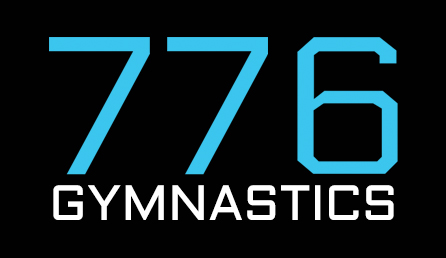776 Gymnastics Coaches Code of Conduct
Purpose of our Codes of Conduct
Our code of conducts reflect the British Gymnastics’ standards of behaviour for gymnasts, coaches, parents and visitors and also incorporates the views of its members. They act to provide a clear framework within which anyone involved in the club are expected to conduct themselves.
Protecting the rights of the gymnast
- Coaches must respect and champion the rights of every individual to participate in gymnastics. This includes:
- Providing an environment in which children are free from fear or harassment.
- Recognising the rights of performers to be treated as individuals.
- Encouraging performers to confer with other coaches if the need arises, and encouraging them to move on as their ability increases, even if this means moving to a new coach.
- Promoting the concept of a well balanced lifestyle for performers both within and outside of gymnastics.
The relationship with the gymnast
Coaches must develop a relationship with the gymnasts in their care based on openness, honesty, mutual trust, and respect. This includes:
- Always being publicly open when working with gymnasts. Coaches should avoid working alone and unobserved with an individual
- Taking care when providing manual support, only BG advised techniques for spotting and handling should be used
- If a group of gymnasts need to be supervised in the changing rooms coaches should supervise in pairs
- Coaches should never take a gymnast home with them, or to any other secluded place
- Similarly, coaches should avoid transporting gymnasts or, where the need arises, explicit permission from the parent/guardian should be sought and the coach should try to take more than one child, and where possible another adult
- Never engaging in rough or sexually provocative games
- Never making suggestive remarks to a member – even in fun
- Doing things of a personal nature for a child that they can do for themselves including assisting them in changing rooms or toilets
- Sharing a bedroom with an individual gymnast on overnight excursions – in this instance coaches should supervise in pairs where possible supervising groups of children
- The coach should at all times be concerned for the safety, well-being, protection and future of the gymnast.
- Discouraging gymnasts from following coaches on social media (and visa versa).
Responsibilities – Personal standards
Coaches must demonstrate proper personal behaviour and conduct at all times. This include:
- Whilst representing the club, coaches should wear club uniform and be of a clean and tidy appearance
- Coaches should maintain good time keeping
Responsibilities – Professional standards
To maximise benefits and minimise the risks to athletes, coaches must attain a high level of competence through qualifications and a commitment to ongoing training that ensures safe and correct practice. This includes:
- Coaches must not misrepresent their qualifications, affiliations or professional competence to the club, club members, or any form of the media
- Coaches have a professional obligation to the gymnasts to treat all allegations or suspicions of abuse seriously and with the utmost discretion. The first point of contact for any matters relating to this is the club child protection and welfare officer. Alternatively, coaches should raise their concerns with their mentor or head coach
- Coaches should not publicly criticise fellow coaches or other clubs in any branch of the media or to club members or parents
- Any conflict between coaches should take place in private, not in front of members. Any disagreements that cannot be satisfactorily resolved through discussion and compromise should be reported to the head coach at the first available opportunity
- All matters concerning the business of the gym club should be kept confidential at all times
- Coaches must not divulge any confidential information relating to a gymnast, member, or fellow coach to any third party without the explicit permission of that person or their parent/guardian
- Coaches have an obligation to declare to the gymnastic club any other current coaching commitments. Coaches who become aware of any conflict affecting their obligation to the club must bring the situation to the attention of the club manager immediately
- All coaches have a professional duty of care that includes a responsibility to ensure all equipment is safe to use, suitable for the purpose of the exercise and appropriate for the ability level of the gymnasts participating
- The duty of care extends to include an obligation to record any health and safety issues in the health and safety book, and bring them to the attention of the health and safety officer immediately
- Coaches must discourage unsafe and inappropriate behaviour at all times, and are obliged to follow guidelines in the disciplinary policy when dealing with any incidents
- If a coach enlists the help of an unqualified person during their session the coach has full responsibility for that person’s actions during the session
- For the comfort and safety of all coaches using the gym, equipment should be stored safely and in the appropriate places after every session.
- Coaches should communicate with parents via the clubs recognised avenues.
- Drugs, alcohol & criminal convictions
- The use or possession of drugs or alcohol, or being under the influence of drugs or alcohol while on the premises is strictly prohibited, and person breaking this rule will be dismissed
- All coaches are required to complete a DBS check prior to starting paid or voluntary work within the club. If during the course of their employment any coach is convicted of a criminal offence they are obliged to report this to the head coach immediately.
